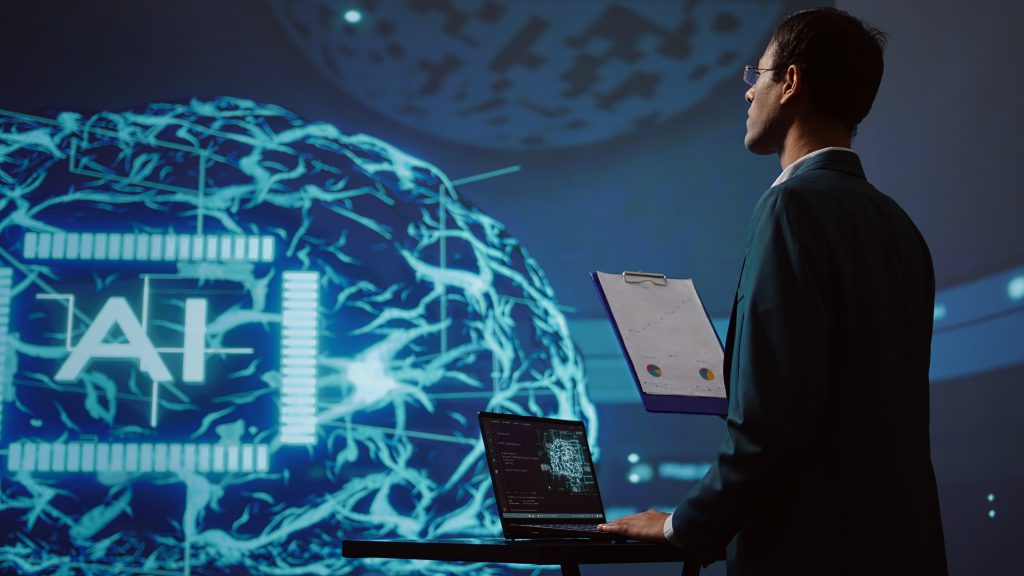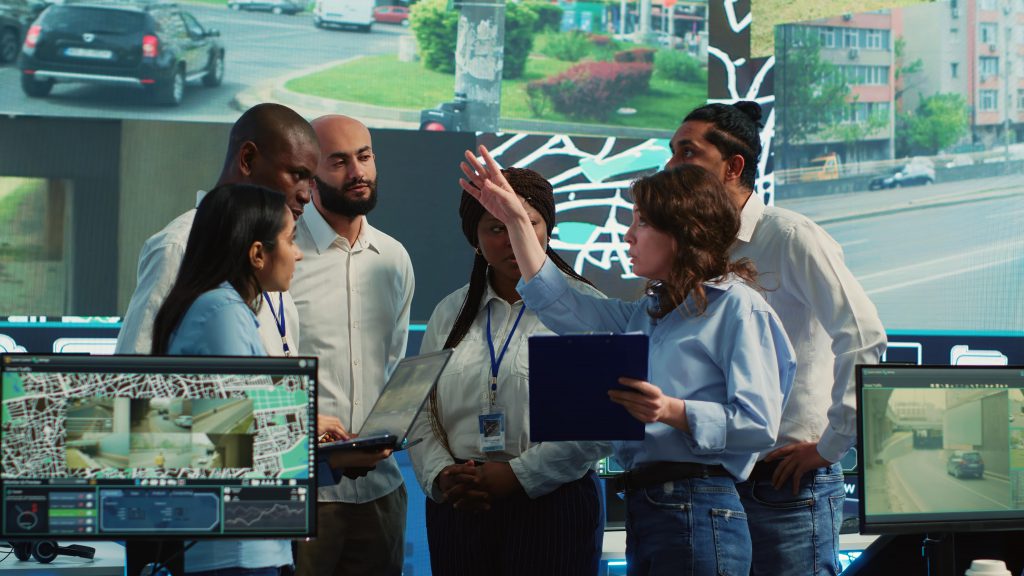In today’s fast-moving world, technology is everywhere. From shopping online to working remotely, digital tools have changed how we live and work. This big shift is called digital transformation. It means using technology to improve businesses, services, and even daily life. While many people think programming or coding is the main skill behind this change, there’s more to it. A Master of Computer Applications (MCA) degree offers much more than just coding knowledge. MCA experts are playing a huge role in driving digital transformation. In this blog post, we’ll explore how their skills go beyond programming and help shape the future.

What Is MCA and Why It Matters
MCA is a postgraduate degree in computer applications. It takes about two to three years to complete and teaches students about computers, software, and technology. Unlike basic programming courses, MCA covers a wide range of topics. These include software development, data management, networking, cybersecurity, and even business skills. This mix of knowledge makes MCA graduates special. They don’t just write code—they understand how technology fits into the bigger picture of a business or organization.
Digital transformation is all about making things faster, smarter, and more efficient with technology. For example, a company might use an app to sell products online instead of just relying on a physical store. MCA experts are the ones who make this possible. They have the skills to design, build, and manage these digital solutions. Let’s look at how their expertise goes beyond programming and powers this change.
1. Solving Real-World Problems
Programming is about writing instructions for a computer. But MCA graduates do more than that—they solve problems. They look at a business or a situation and figure out how technology can help. For instance, imagine a hospital struggling to keep patient records organized. An MCA expert might create a system to store records digitally, making them easy to find and secure. This isn’t just coding; it’s understanding the hospital’s needs and designing a solution.
This ability to think beyond code is key to digital transformation. Companies don’t just need apps—they need systems that work for them. MCA professionals use their training to analyze problems, plan solutions, and then build the technology. They act like bridges between business goals and technical tools.
2. Managing Data Smartly
Data is the backbone of digital transformation. Every time you shop online, watch a video, or use an app, you create data. Businesses use this information to understand customers and make better decisions. But handling data isn’t easy—it’s a big job. MCA experts are trained to manage data in smart ways.
For example, they know how to store huge amounts of information using databases. They can also analyze data to find patterns, like which products sell the most. This helps companies improve their services. MCA graduates also ensure data stays safe from hackers, which is very important today. Their skills in data management go far beyond writing simple programs—they make data useful and secure.
3. Building Strong Systems
Digital transformation needs strong and reliable technology. Think about online banking. If the system crashes or gets hacked, people lose trust. MCA experts are skilled at creating systems that work well and stay safe. They learn about networking, which is how computers connect, and cybersecurity, which protects against attacks.
For instance, an MCA graduate might design a website that handles thousands of users at once without slowing down. They also test systems to find weak spots and fix them. This work requires more than coding—it needs planning, testing, and understanding how technology behaves under pressure. MCA expertise ensures digital tools are not just built but built to last.
4. Connecting Technology with Business
One big strength of MCA graduates is their ability to connect technology with business needs. They don’t just focus on computers—they also learn about management and strategy. This means they can talk to both tech teams and business leaders. For example, if a company wants to launch a new app, an MCA expert can explain the technical side to the developers and the business benefits to the managers.
This mix of skills is perfect for digital transformation. Businesses want technology that makes money, saves time, or improves customer experience. MCA professionals help make that happen by designing solutions that match the company’s goals. They are not just programmers—they are problem-solvers who understand the bigger picture.
5. Adapting to New Trends
Technology changes fast. A few years ago, people didn’t talk much about artificial intelligence (AI) or cloud computing. Now, these are huge parts of digital transformation. MCA courses teach students how to keep learning and adapt. They study the latest trends and tools, like AI, machine learning, and the Internet of Things (IoT).
For example, an MCA expert might use AI to build a chatbot that answers customer questions on a website. Or they might move a company’s data to the cloud so it’s easier to access. These skills go beyond basic coding—they require staying updated and thinking creatively about how new tools can help.
6. Leading Teams and Projects
Digital transformation often involves big projects, like redesigning a company’s entire online system. These projects need leaders who can plan, organize, and guide teams. MCA graduates are trained in project management, which makes them great at this. They know how to break a big task into smaller steps, assign jobs to team members, and make sure everything finishes on time.
For instance, launching a new e-commerce website might involve designers, coders, and testers. An MCA expert can lead this team, ensuring everyone works together smoothly. This leadership ability is another way their expertise goes beyond programming—it’s about making ideas come to life.
Real-Life Examples of MCA Impact
Let’s look at some examples to see how MCA skills drive digital transformation. In education, MCA graduates have built online learning platforms that let students study from anywhere. During the COVID-19 pandemic, these tools became a lifeline for schools and colleges. In healthcare, they’ve created apps that let patients book doctor appointments easily. In retail, they’ve helped small shops go online by setting up digital stores.

These examples show that MCA expertise isn’t just about writing code—it’s about changing how industries work. Whether it’s making life easier for customers or helping businesses grow, MCA professionals are at the heart of this digital shift.
The Future of MCA in Digital Transformation
As technology keeps growing, the role of MCA experts will only get bigger. New fields like blockchain, virtual reality, and smart cities will need their skills. Companies will rely on them to stay ahead in a digital world. Their ability to combine technical knowledge with practical solutions makes them perfect for this job.
For anyone thinking about a career in technology, MCA is a great choice. It’s not just about programming—it’s about building the future. Whether you’re a student or a professional, the skills you gain from MCA can open doors to exciting opportunities.

Conclusion
Digital transformation is changing the world, and MCA expertise is a driving force behind it. Beyond programming, MCA graduates bring problem-solving, data management, system-building, and leadership to the table. They connect technology with real needs, adapt to new trends, and lead projects that make a difference. Their work touches every part of life, from shopping to healthcare to education. As we move into a more digital future, MCA professionals will keep pushing the boundaries of what’s possible. They prove that technology isn’t just about code—it’s about creating a better, smarter world.

